Primates of Antiochian and Russian Orthodox Churches celebrate Liturgy at Cathedral of Christ the Saviour on Forgiveness Sunday
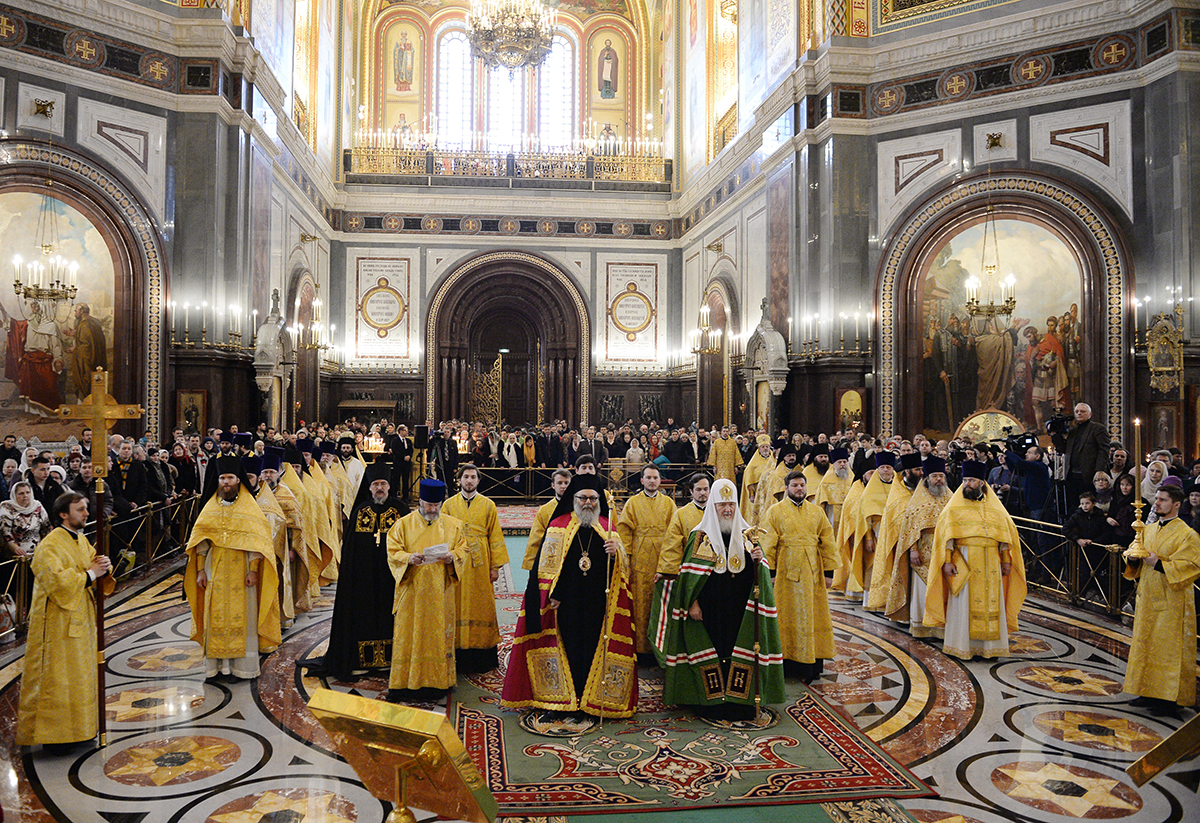

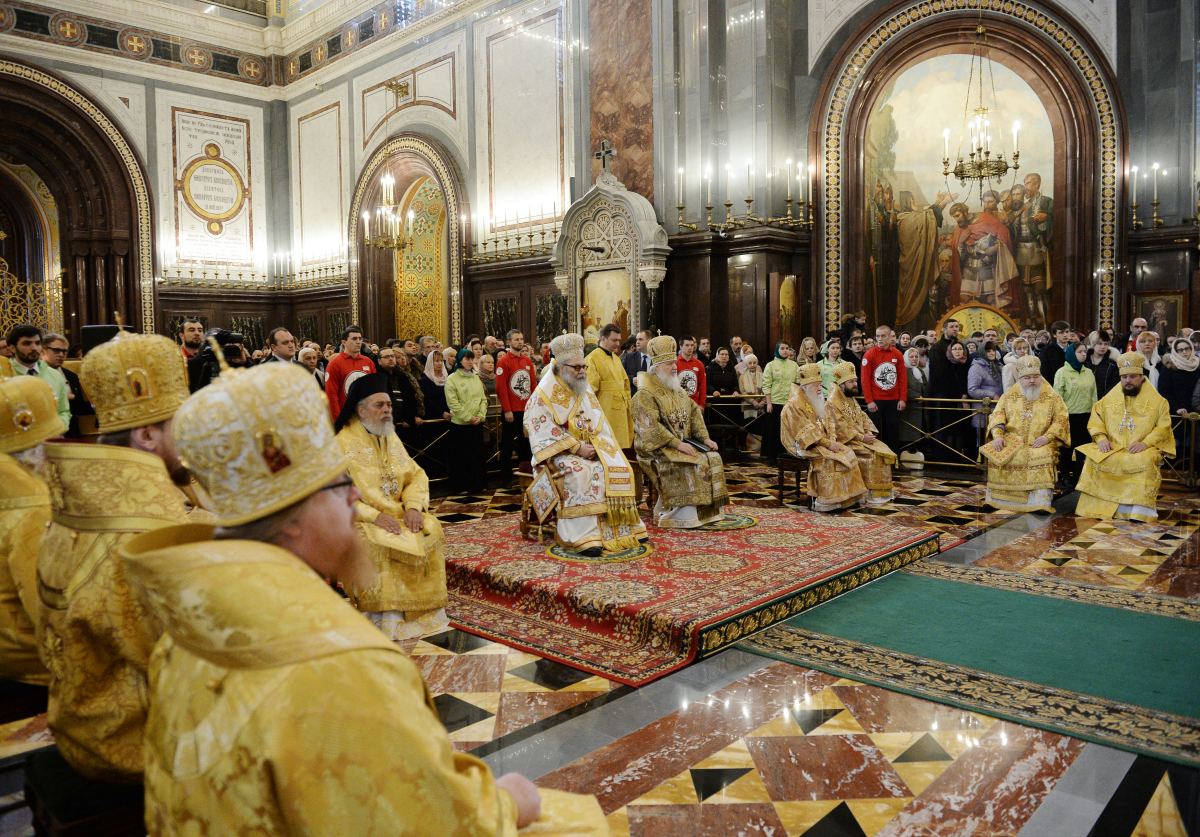
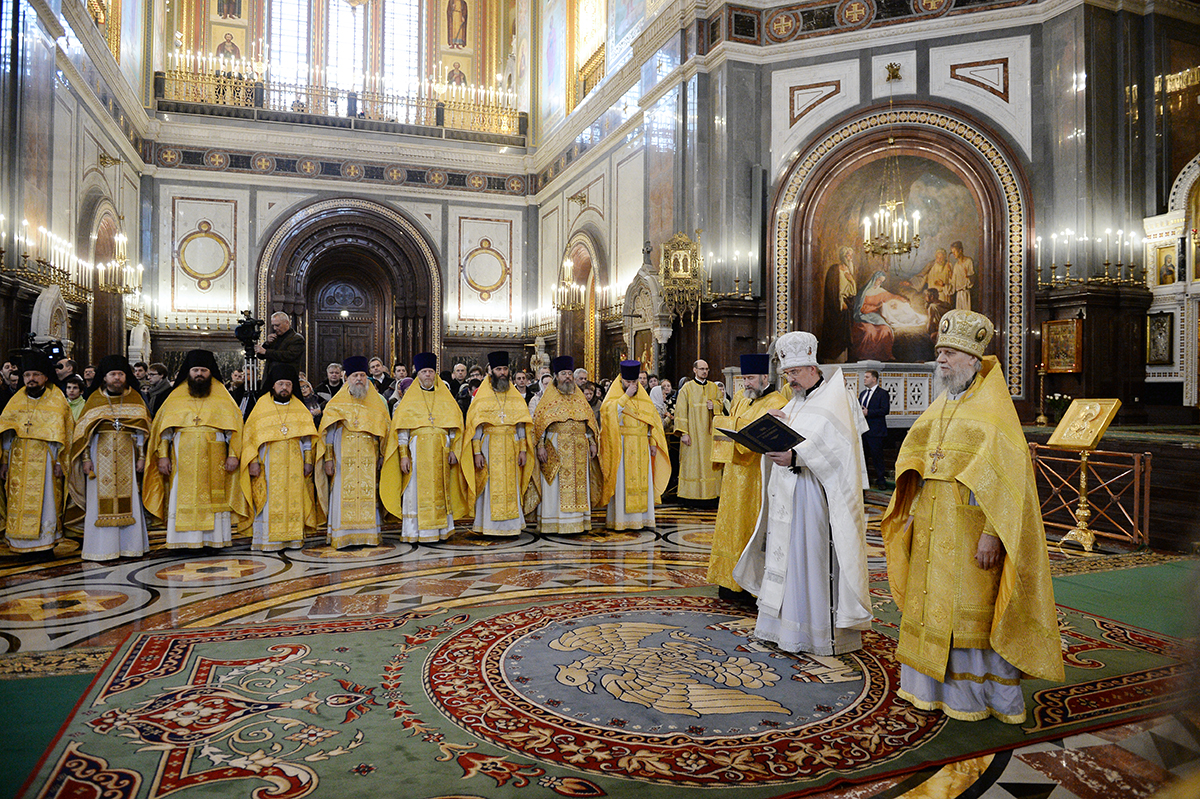
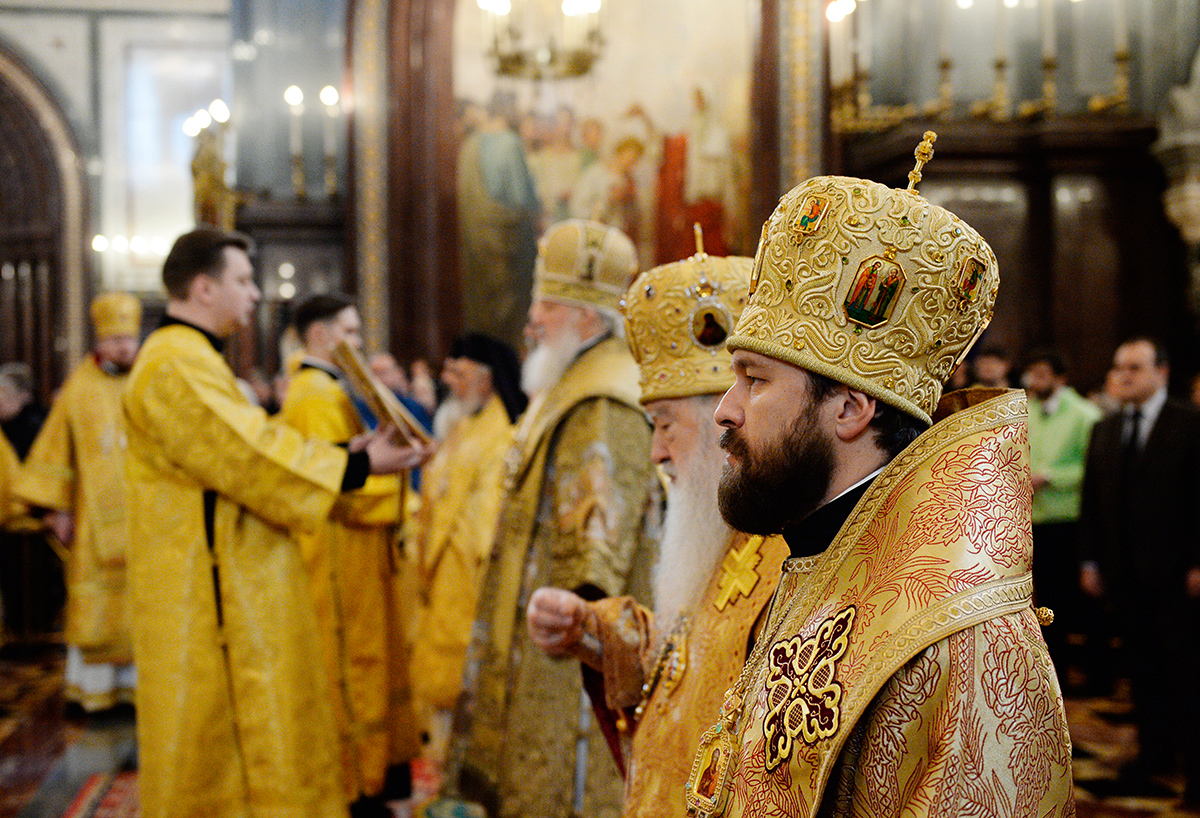
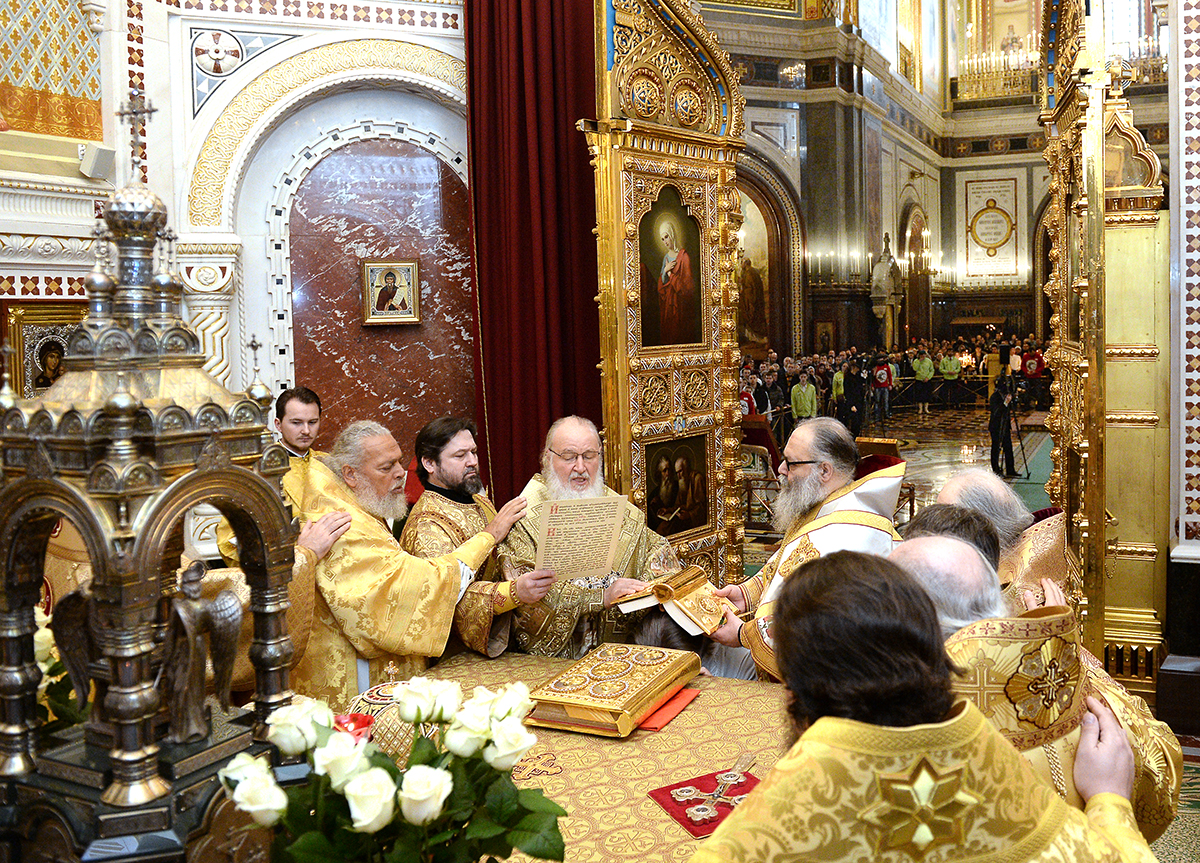
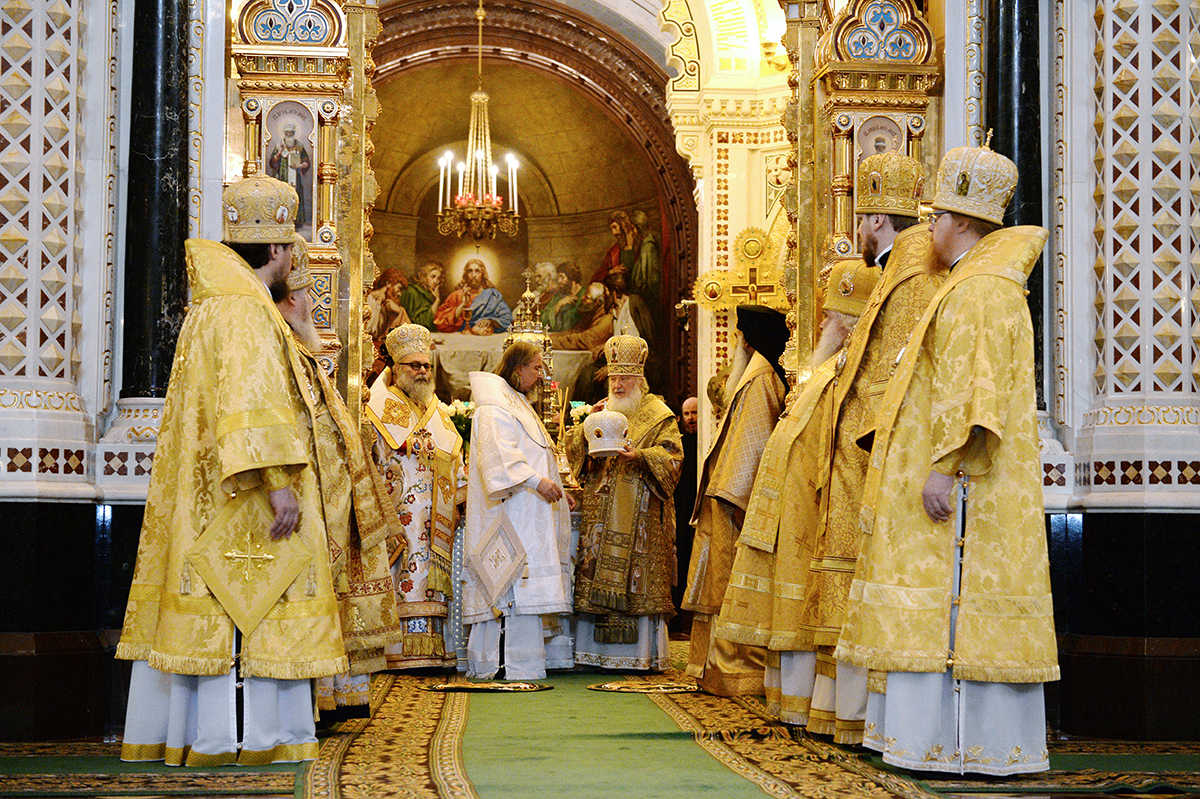
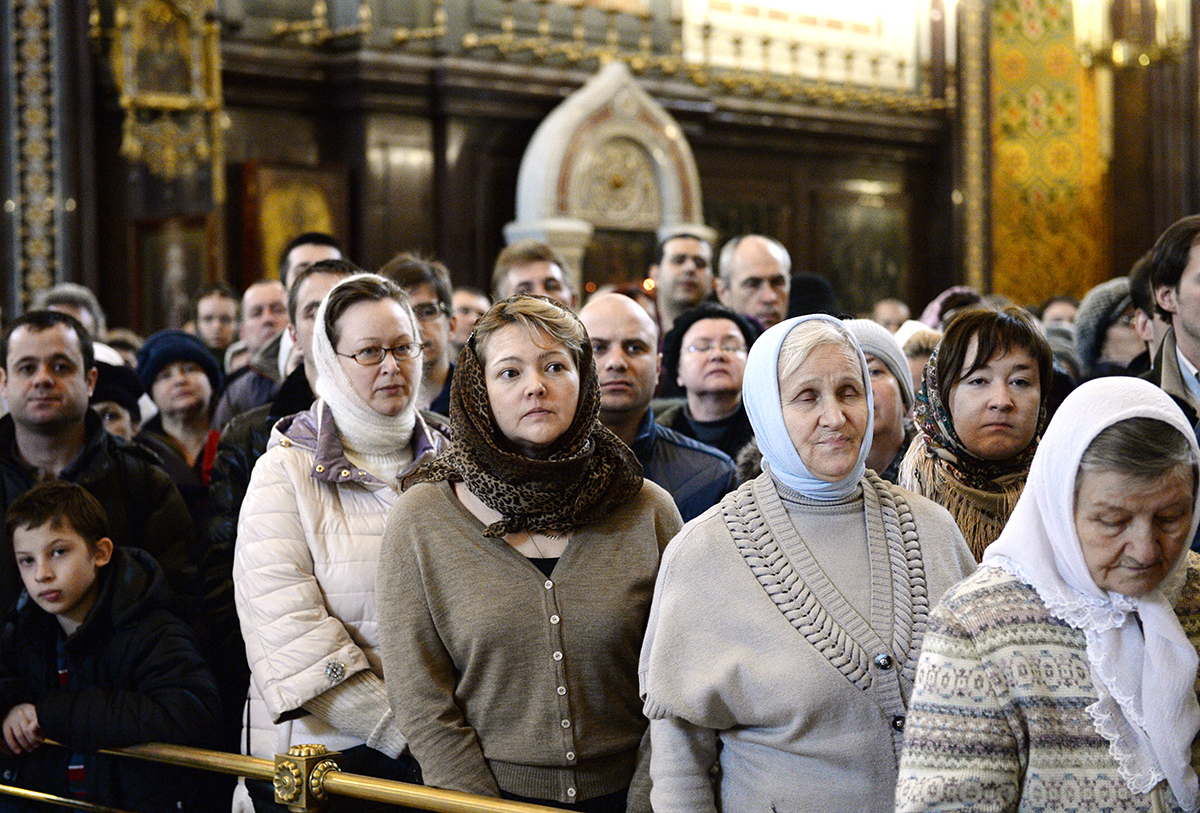
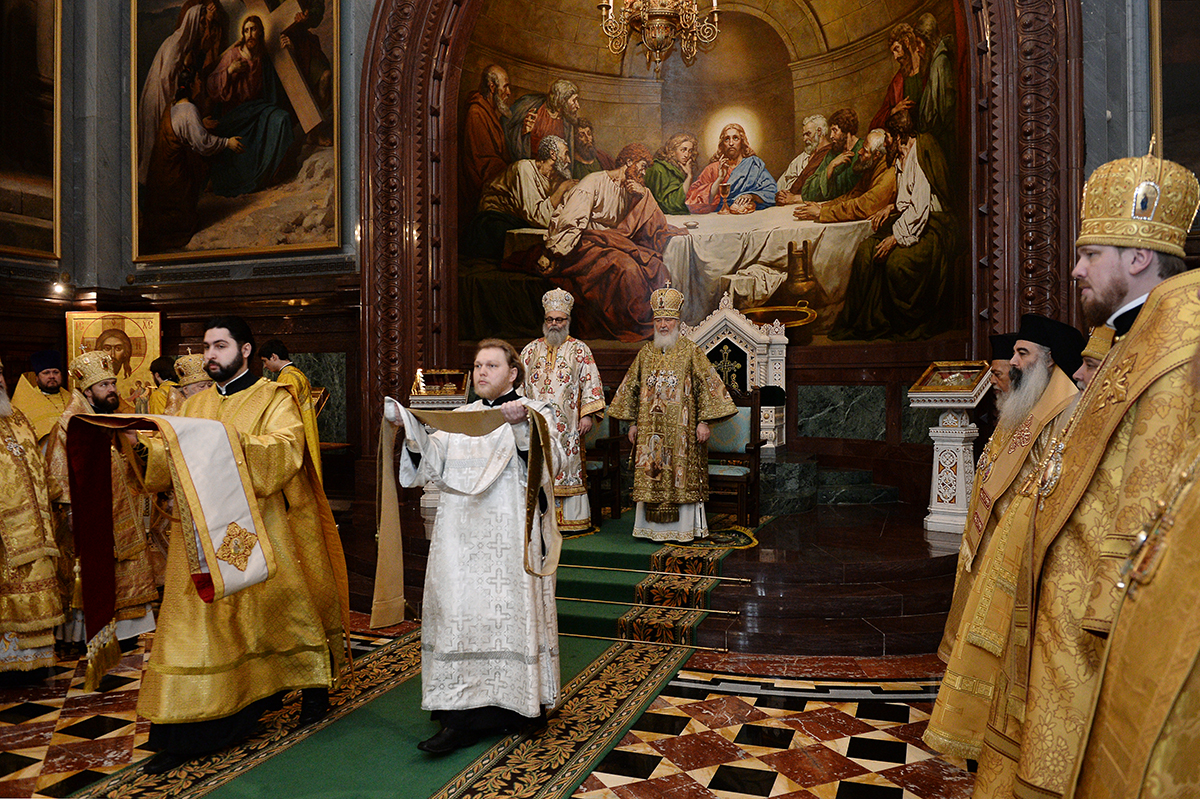
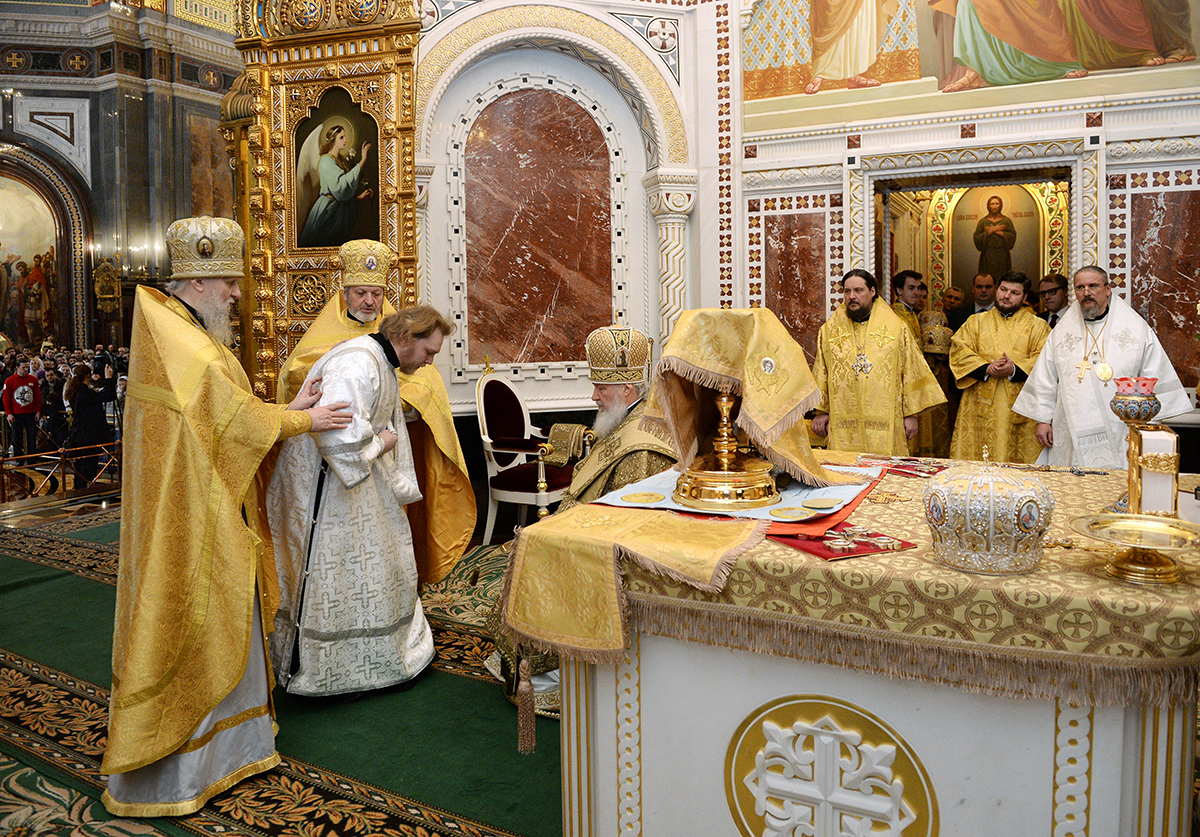
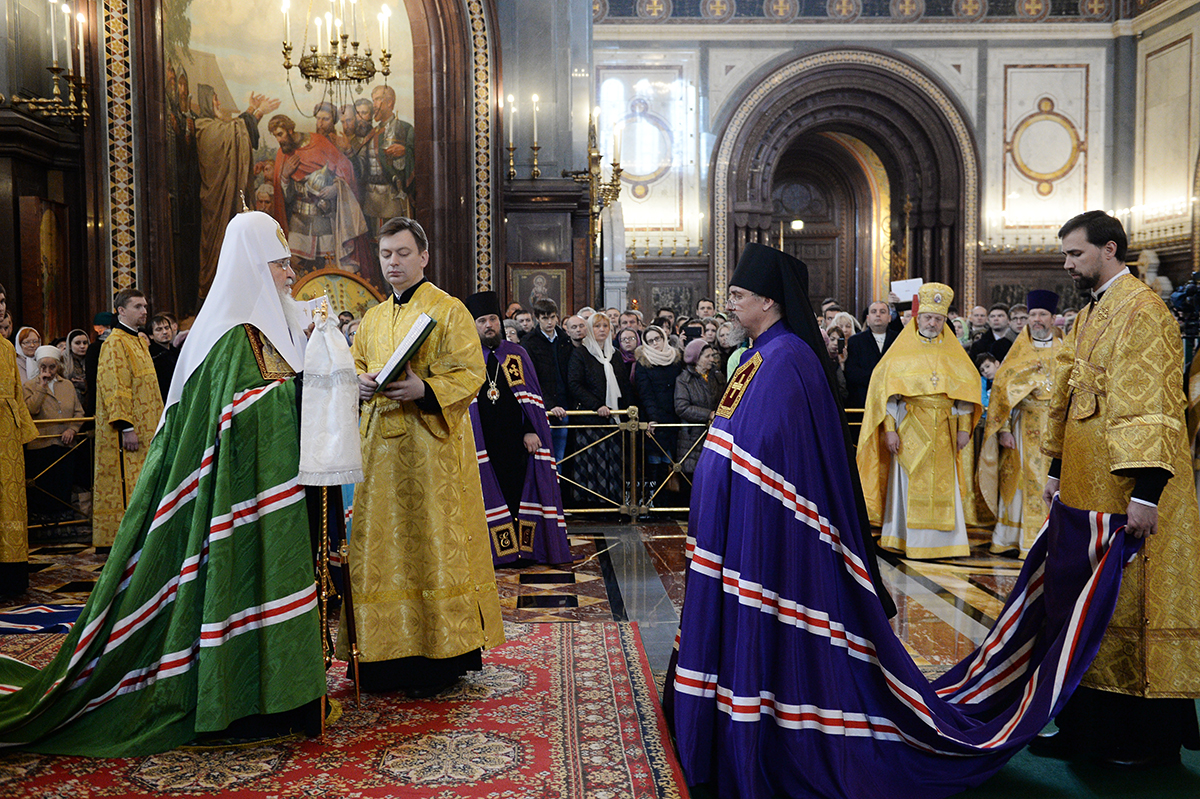
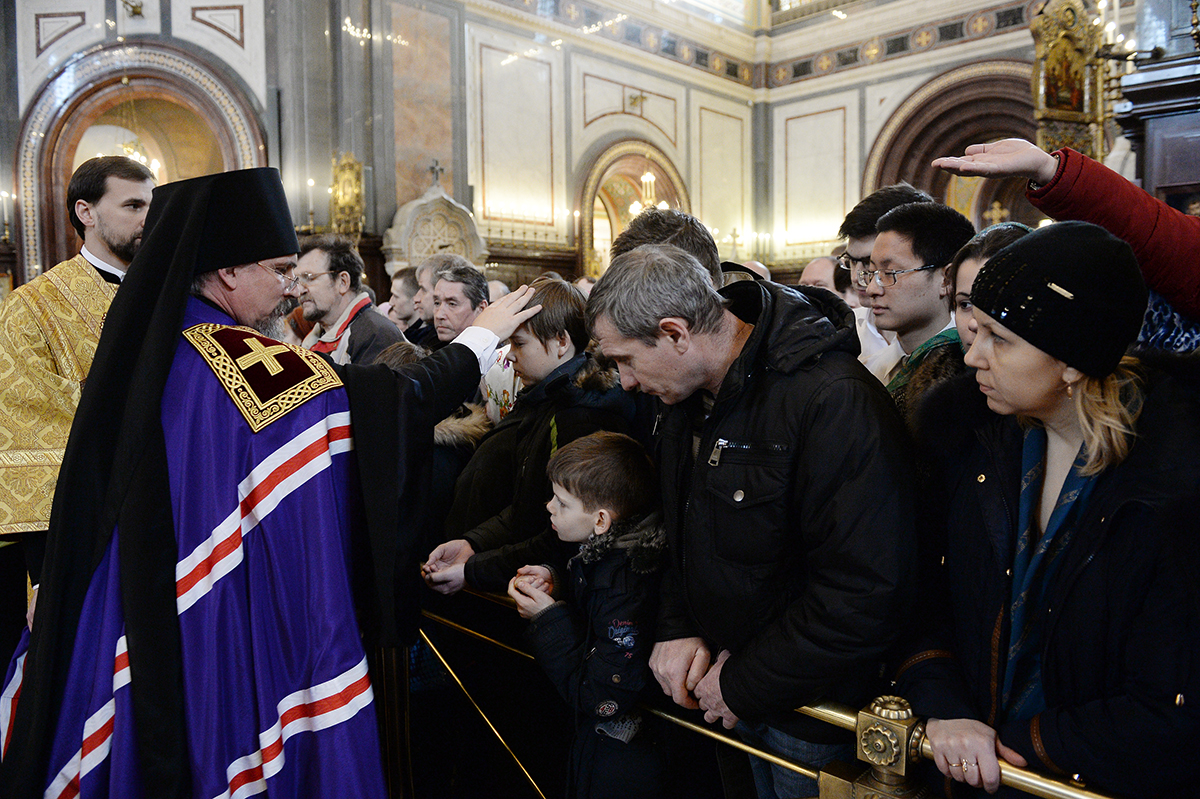
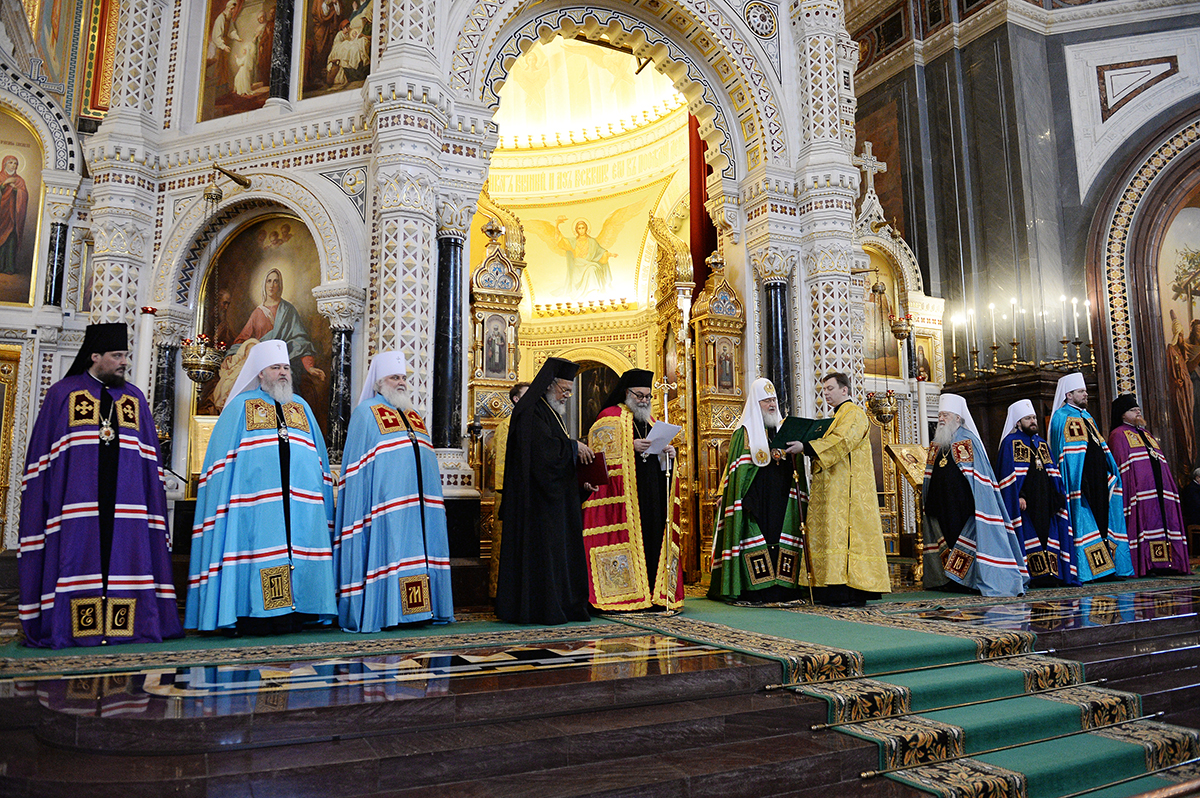
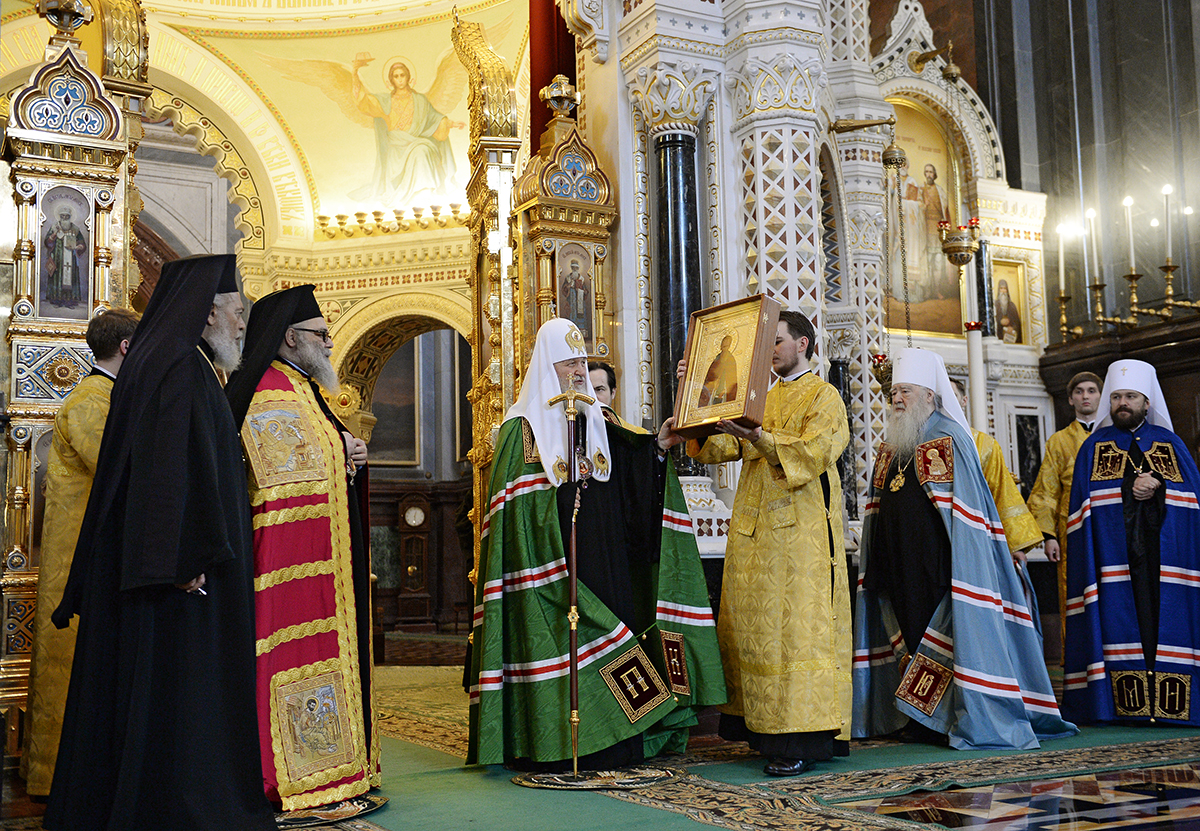
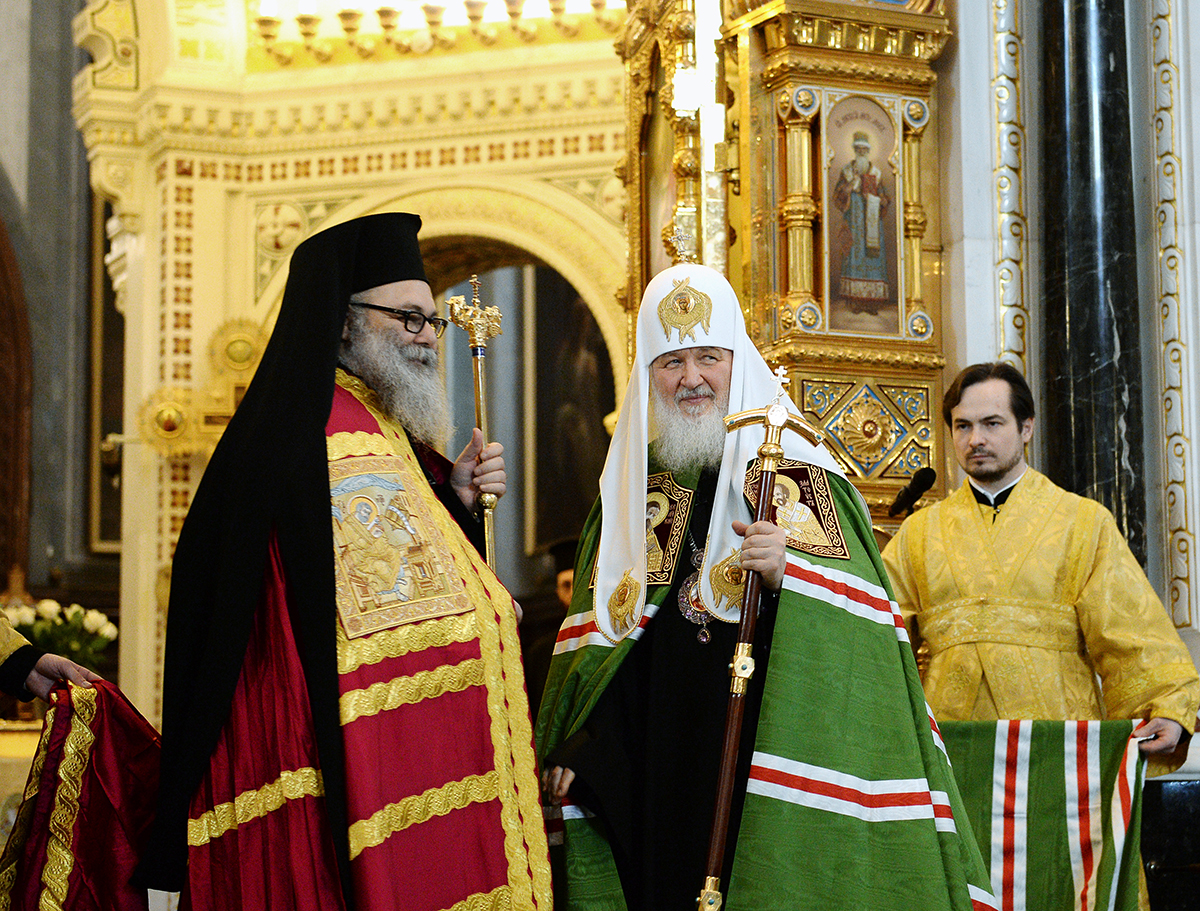
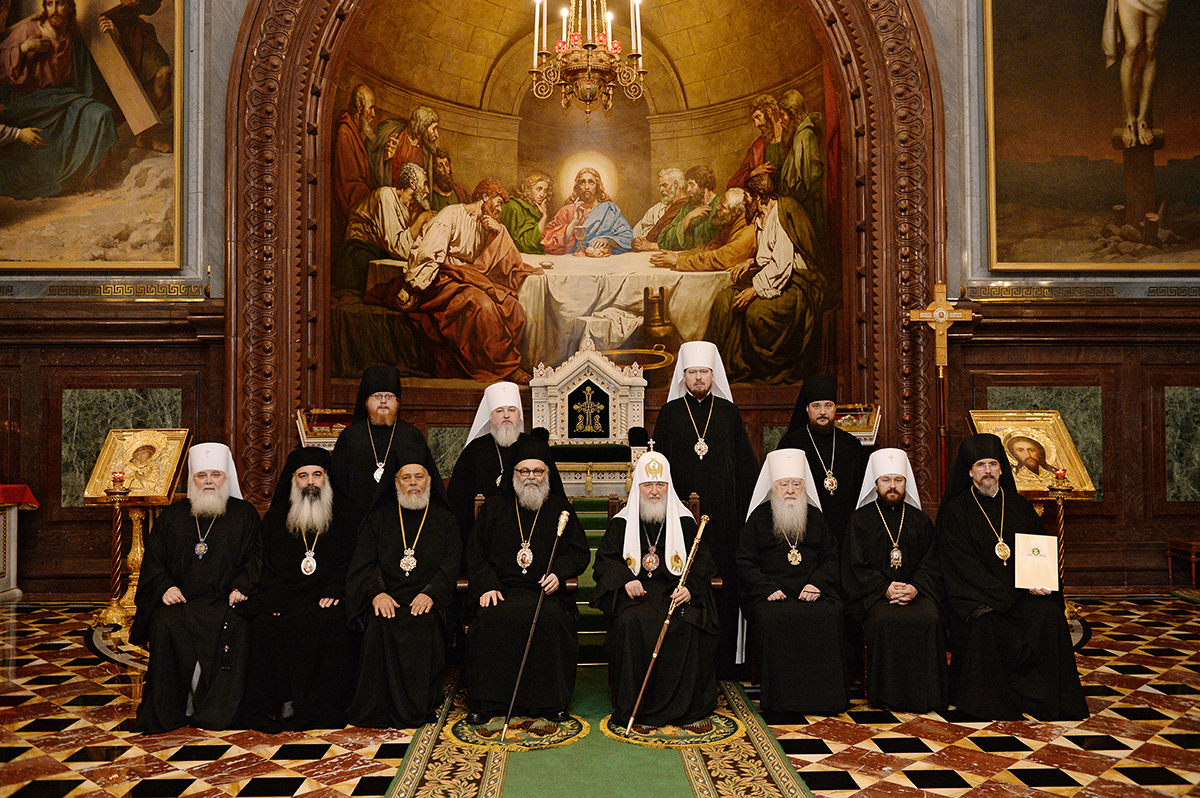

On 22 February 2015, Cheesefare Sunday, remembrance of Adam’s expulsion from Paradise (Sunday of Forgiveness), commemoration of the finding of the relics of St Innocent the Bishop of Irkutsk and of the relics of St Tikhon the Patriarch of Moscow and All Russia, His Beatitude John X, Patriarch of Great Antioch and All the East, and His Holiness Kirill, Patriarch of Moscow and All Russia, celebrated the Divine Liturgy at the Cathedral of Christ the Saviour in Moscow.
Concelebrating with His Beatitude and His Holiness were an assembly of hierarchs and clergymen of the Russian Orthodox Church and ordained members of the delegation accompanying the Primate of the Orthodox Church of Antioch on his visit.
After the Litany of Fervent Supplication, the Primate of the Russian Orthodox Church lifted up a prayer for peace in Ukraine.
After the Liturgy, His Holiness Patriarch Kirill of Moscow and All Russia delivered a primatial homily, saying in particular:
“Your Beatitude John, Patriarch of Great Antioch and All the East, Your Eminences and Your Graces, all-honourable fathers, dear brothers and sisters,
“I cordially greet Hs Beatitude Patriarch John X of Antioch and All the East, who has once again visited the Russian land and celebrated the Divine Liturgy with us and today, as well as all those archpastors and pastors who have joined us in our common prayer. Together we have partaken of the Holy Gifts from one Chalice, renewing the fraternal communion of our two Churches in the Holy Eucharist.
“The Lent begins tomorrow, and today we are preparing for this time of strict fast and zealous prayer. This day is popularly known as the Sunday of Forgiveness. According to a pious tradition, today we ask each other for forgiveness.
“In today’s Gospel reading we have heard the following words, If ye forgive men their trespasses, your heavenly Father will also forgive you: But if ye forgive not men their trespasses, neither will your Father forgive your trespasses (Mt 6:14-15). All the faithful know by heart the words from the Lord’s Prayer, And forgive us our debts, as we forgive our debtors (Mt 6:12). One of the Egyptian hermits, Abba Silvanus, said, while rebuking a rancorous man, that if someone bears malice to his neighbour, he has to pray with the following words, “And forgive us not our debts, as we forgive not our debtors.” Yet, who would dare say this to God? Forgiveness is the fundamental principle of Christian life and communion with God: neither prayer nor thanksgiving is possible without repentance. Religious life begins with repentance, with the word “forgive,” addressed to God and to neighbours.
“Forgiveness is often seen as a good deed, as a gift to a neighbour, but it is, first and foremost, a good deed committed for our own sake. Hatred fetters and mutilates people; it ruins their life. Those who forgive grant themselves freedom and spiritual health. To forgive means to make our life easier: to live without enmity and malice, with clear conscience, giving thanks to God and loving people around us.
“We all want to live in a just human society, under the rule of law, with each crime entailing its punishment. The Divine justice also has its rules, as expressed in God’s commandments, and its requital. The Divine justice is always based on love. Our Heavenly Father treats us as His children and is willing to forgive us our mistakes and trespasses, provided, however, that we ourselves are ready to forgive others.
“The Fathers say that there is nothing outside God, because evil has no substance. We, Christians, know that people can preserve and multiply their good qualities only if they abide in God. If a man has lost his ability to forgive, he has forsook God and is doomed to self-destruction, to non-being. If the whole society has forgotten how to forgive, it is not viable. How long will the society, brimful of hatred, as if a chalice filled with a deadly poison, exist?
“It was a year ago, when Your Beatitude came to us on the irenical visit, that you told us with bitterness about the troubles and afflictions that had befallen our Orthodox brothers and the fraternal people of Syria and Lebanon. We have always empathized with the Holy Church of Antioch, we rendered and will continue to render all the aid we can to those suffering, and will not cease to pray for them. Yet, now the war and discord have come to us as well, have come into our big house, have come to Ukraine, which is so dear to my heart. Now blood and tears are being shed there.
“All the faithful of the Russian Orthodox Church are praying for the peace and prosperity, for the salvation and wellbeing of their brothers and sister in Ukraine. I believe that just peace will be restored in the Ukrainian land. We know that it is most difficult to heal the souls of people crippled by a civil conflict and hatred. Sometimes it might take many years. If we want prosperity for Ukraine, Russia and all our nations, for Syria, Lebanon and our brothers in the Middle East, we must, first of all, learn how to forgive, no matter how hard it might be. This is what gives start to spiritual revival and transfiguration of a human being, of a society, and of the whole humanity.
“I wholeheartedly wish peace and prosperity to the ancient Patriarchate of Antioch and to its pious flock.”
His Beatitude Patriarch John X of Antioch and All the East also addressed all those present with his primatial homily.
Press Service of the Patriarch of Moscow and All Russia
DECR Communication Service
